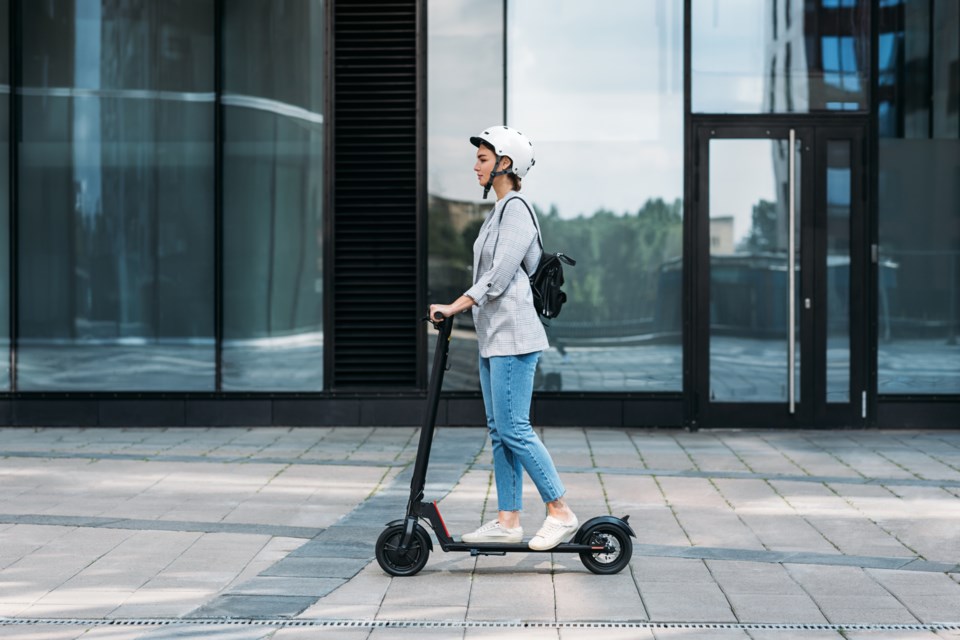With the recent rise in e-scooter and e-bike rentals taking over Cambridge, it's crucial for locals to grasp the ins and outs of insurance and liability that come with these handy modes of transportation. Thanks to the collaboration between the Region of Waterloo and Neuron Mobility, close to 500 e-bikes and 500 e-scooters have hit the streets, with around 20 e-scooters and 3 e-bikes now in Cambridge.
Navigating the Insurance Maze
Although e-scooters are an eco-friendly and budget-friendly way to zip around town, riders must be cautious of possible risks and liabilities. Unlike cars, e-scooter users don't have compulsory insurance like cars do, potentially leaving you exposed in case of accidents or damages.
In Ontario, e-scooters are considered motorized vehicles and are subject to the Highway Traffic Act. They don't need registration, license plates, or vehicle permits yet. This unique classification puts e-scooters in a tricky spot when it comes to insurance coverage.
While rental companies like Neuron Mobility have commercial general liability insurance, this mainly protects the company from third-party claims. Riders shouldn't assume this insurance will cover their personal liabilities or damages while using an e-scooter. They should talk to their insurance agent so they know what would happen if anything goes wrong.
Balancing on the Legal Tightrope
If an accident involves an e-scooter, a rider's personal liability could be substantial. Risks include property damage, rider injury, or harm to pedestrians and other road users. Riders should review their existing insurance policies, such as vehicle insurance, to see if any coverage extends to e-scooter use. If a scooter were held to have caused the circumstances that led to a car accident, even if the scooter avoided any physical contact with the vehicles, the driver could be liable as well as the owner of the scooter.
Some insurance providers might offer personal liability coverage for e-scooter riders as an add-on to existing policies. If you have a homeowner policy or existing auto policy, check with your current insurer. If you don’t have a policy, contacting an insurer or broker and obtaining coverage could shield riders from financial loss in case of an accident. Riders should talk with their insurance providers to explore options and make sure they're adequately covered while using e-scooter rentals or if they have purchased their own e-scooter.
Whizzing Through Cambridge Bylaws and Regulations
Riders need to be familiar with local bylaws and regulations that govern e-scooter use in Cambridge. E-scooter riders must be at least 16 years old. These scooters can be ridden on all region and city roads with multi-use paths, like paved asphalt paths next to roadways or dedicated bike lanes. They're also allowed on roads without multi-use paths, as long as the posted speed limit is 50 km/h or less. E-scooters should stay as far to the right as possible.
Hop on your e-scooter and hit the trails, like the Iron Horse, but stay off sidewalks and high-speed roads without bike lanes.
The Ministry of Transportation doesn't require the use of helmets for people over 18 riding e-scooters. However, the Region of Waterloo mandates helmets for all riders, regardless of age.
It's also essential for riders to practice safe riding habits to minimize the risk of an accident. This includes wearing a helmet, obeying traffic rules, maintaining safe speeds, and being considerate of pedestrians and other road users.
Information provided by your friends at Dietrich Law Office, 141 Duke St. E. Kitchener Ontario
